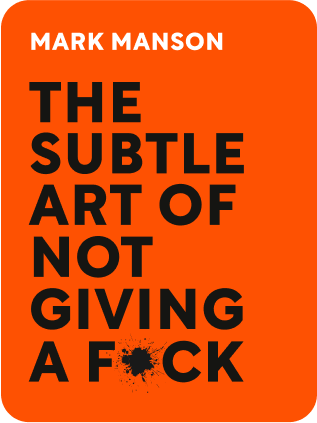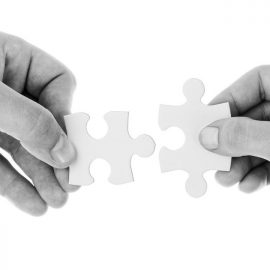

This article is an excerpt from the Shortform book guide to "The Subtle Art of Not Giving a F*ck" by Mark Manson. Shortform has the world's best summaries and analyses of books you should be reading.
Like this article? Sign up for a free trial here .
Why does Mark Manson say that emotions are overrated? Where do most people go wrong when handling their emotions? What is the purpose of emotions?
The purpose of emotions is to provide you with feedback on what is good and bad for you. However, many people fixate on and identify with their emotions, which leads to failure and excuses.
Keep reading to learn why emotions are overrated and you shouldn’t put too much stock into them.
Why Emotions Are Overrated
Although we like the idea of being happy and problem-free all the time, we can’t be. But we still try. We fixate on our emotions, misunderstanding their function and allowing them to lead us in the wrong direction. That’s why emotions are overrated.
The purpose of emotions is to give you feedback, telling you that something is good or bad for you. Emotions point you toward useful change.
Negative emotions are a signal to take action. For instance, feeling sad because we are alone teaches us not to do the things that created our lonliness in the first place.
Positive emotions are a reward for doing the right thing.
Mishandling Your Emotions
Here’s where people go wrong in handling their emotions:
- They over-identify with how they feel. They use their emotions to justify their actions: “I broke your windshield, but I was really mad and couldn’t help it.” Or, “I dropped out of school and moved to Alaska because it felt right.” Emotions are part of life, but not the be-all/end-all.
- They make decisions based on emotion, without applying reason. Children do that, but it doesn’t work for adults.
- They fixate on their emotions. This leads to failure because emotions are overrated and fleeting: What makes us happy today won’t do so tomorrow, because our biology drives us to keep seeking further satisfaction.
- Fixating on feeling good or happy drives us to constantly pursue a holy grail, which we don’t reach; not reaching it makes us feel inadequate. Psychologists call this the “hedonic treadmill”: Even though we work hard to change something in our lives, we end up feeling the same.
- Everything comes with a built-in negative or sacrifice. The thing that initially makes us feel good also has a negative side. For instance, the person we marry is also the one we fight with. The job we sought becomes a source of stress.
- They put too much trust in their emotions. We shouldn’t always trust our emotions: The fact that something feels good or bad doesn’t mean that it is. We should get into the habit of questioning our emotions. Emotions are suggestions, not dictates to do something.
- They repress their emotions. Many people are taught to repress emotions, but by doing that you block feedback that could help you solve your problems, and you will continue to struggle with unsolved problems. (Remember, you can’t be happy if you can’t solve problems.)

———End of Preview———
Like what you just read? Read the rest of the world's best book summary and analysis of Mark Manson's "The Subtle Art of Not Giving a F*ck" at Shortform .
Here's what you'll find in our full The Subtle Art of Not Giving a F*ck summary :
- How to clarify what's important to you (and not just what you think should be important)
- Why it's okay for things to not always go well in life
- Why you need to care about fewer things






